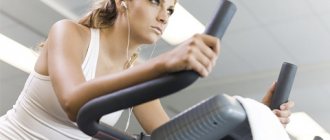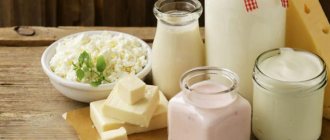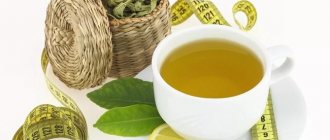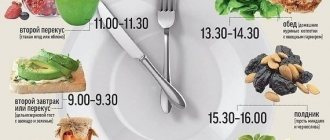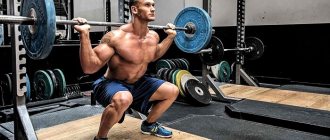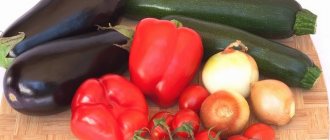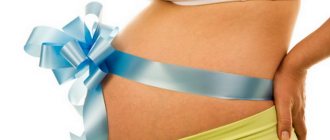What not to eat during menstruation
A diet during menstruation forces women to give up a number of foods that increase discomfort during menstruation and, conversely, introduce foods into the diet that relieve pain and discomfort.
Pay attention to foods and dishes that are not recommended to be consumed during menstruation:
- Fried foods. Using vegetable and animal fats for frying increases pain syndromes during menstruation.
- Semi-finished products and canned food. Such products contain a high salt content, which increases pain and swelling of the body.
- Sugar, chocolate. They can cause irritability, drowsiness, and increase blood sugar levels. It is recommended to replace them with bananas, dried apricots, and peaches. If you can’t refuse chocolate, choose some dark chocolate.
- Muesli and dishes made from premium flour.
You must also refuse:
- Sukharikov;
- Chips;
- French fries;
- Fast food.
These foods contain a lot of fat and salt.
Drinking alcohol during menstruation is strictly not recommended, because it excites the nervous system and dilates blood vessels, which increases irritability and increases the volume of discharge.
During menstruation, any food of animal origin, as well as sour cream, seeds, and olives, should be prohibited. The exception is fish and chicken.
Drinking coffee is also not recommended, as it can cause headaches, irritability, and increase blood pressure.
In general, it is better to replace many familiar drinks with regular or still mineral water, as well as diuretic decoctions, but you need to remember to restore the level of calcium, which is excreted with fluid from the body.
The given nutritional requirements during menstruation have a positive effect on the functioning of the body at any period of a woman’s life.
How to avoid cycle disruption
In fact, there is nothing wrong with short-term menstrual irregularities. If before this you experienced strong temperature changes, a change in climate and time zone, got sick or were stressed, then this could affect the proper functioning of the ovaries
and shift the cycle time. Menstruation and diet are also connected - excessive exercise, strict nutrition also have a connection on your body and the time of your period. The amount of fat mass in the body is directly related to the percentage of the female hormone estrogen. And when you burn too many calories, the balance of the hormone is disturbed, its level in the body drops and the menstrual cycle becomes irregular.
But do not forget that the length of the monthly cycle for each woman is purely individual.
, depending on the characteristics of her body and environmental factors.
Therefore, you should not worry if cycle disturbances were isolated. But if you regularly experience problems with menstruation
, then you should not put the matter off and consult a gynecologist before the situation becomes critical. The health of the female organs largely determines the condition of the entire body, your mood, appetite and stamina. The gynecologist should examine you, advise you to do an ultrasound of the pelvis, and in special cases, take tests for hormones.
But remember that prevention
– this is the key to good health. Don’t forget to visit your gynecologist once every six months; doing it less often is not recommended. If you are not characterized by heavy menstruation or, on the contrary, scanty menstruation, this is a reason for concern and a visit to a specialized doctor. Sometimes gynecologists ask whether you need to eat more during menstruation, but this, again, depends on the characteristics of the body. And blood loss, of course, needs to be replenished with food rich in vitamins.
If your period starts late in life
– usually after 13-14 years, this means that the level of male hormones in the female body is increased. In such cases, cycles are irregular and the discharge is abundant.
What to eat during your period
Eating fruits and vegetables is encouraged on any day of the menstrual cycle. This diet is especially indicated during menstruation itself. The grocery basket on these days should include the following products:
- Lettuce, sorrel, spinach, dill, green onions.
- Radishes, turnips, rutabaga, carrots, beets, radishes, chard, Jerusalem artichoke, sweet potatoes, celery root.
- Baked potato.
- Fatty, sea fish, shellfish.
- Sea kale.
- Nuts of all kinds.
- Raisins, dried apricots, figs and other dried fruits.
- Flax and sesame seeds, linseed oil.
- Oatmeal and buckwheat porridge.
- Lean meat, such as poultry.
- Bananas, avocados, oranges, watermelons, melon.
- Low-fat fermented milk products, small amounts of hard cheese.
- Apples, currants and other berries.
- Honey.
Beetroot is somewhat questionable because it increases peristalsis, but in return it increases hemoglobin and promotes the elimination of waste, which is very important on the eve of menstruation, and it also reduces pain from abdominal cramps.
Losing weight correctly
Every woman wants to be beautiful, and no matter how old she is, to be confident, she must look good, be fit, cheerful and energetic.
Without physical activity and dietary restrictions, achieving all this is not easy. Some girls are interested - if they go on a diet before the start of their periods, do they need to follow it during these days, or can they continue after they end?
As we have already said, appetite increases during this period, and any restrictions can cause aggression, anger and irritation. In addition, blood loss causes a deficiency of some substances important for health. Therefore, severe restrictions can cause loss of consciousness or cause a serious illness.
Nutrition should be complete, balanced and varied; meals should be taken regularly, preferably 4-5 times at the same time. This way, you will not give your appetite the opportunity to run wild, and saturate your body with useful substances, which will not affect your figure.
What not to eat during menstruation
In order not to cause bloating, it is necessary to reduce the consumption of the following foods in the first days of menstruation:
- Soybeans, peas, beans, chickpeas.
- Cabbage.
- Carbonated drinks.
- White bread and pastries.
- Pasta made from soft grains.
- Whole milk, heavy cream.
We suggest you familiarize yourself with Caucasian hellebore: is it good or bad
? You can reduce pain due to uterine contractions by reducing your consumption:
- Parsley.
- Tomatoes.
- Garnets.
- Grapefruit.
The following restrictions reduce the volume of menstrual flow:
- Refusal of fast food and strong tea and coffee, alcoholic beverages.
- Absence of pickles, smoked meats, marinades and spicy dishes on the menu. In general, it is advisable to avoid salt or reduce its consumption during menstruation.
Protecting the body from hypothermia and overheating, especially from taking hot baths, baths, saunas or showers.
How do periods affect weight?
Hormonal changes before menstruation force the body to store fluid that will be lost during menstrual bleeding. This swelling goes away 3-5 days from the start of the cycle. Metabolism slows down during menstruation, and appetite remains brutal, which can lead to extra pounds. Due to their depressed state, many women try to cheer up with chocolate and flour. Hormonal fluctuations combined with errors in diet are the main reasons why weight does not come off during menstruation.
How many days before menstruation does weight increase?
In the last phase of the cycle, the ratio of hormones changes dramatically. Due to a decrease in progesterone levels, prostaglandin synthesis increases. During this period, the level of serotonin (the hormone of happiness) decreases. At the end of the phase, progesterone and estrogen levels are at a minimum, which causes menstrual bleeding, the cycle begins again.
Under the influence of progesterone, you can see an increase on the scale. This happens at the very end of the last phase of the cycle, five to seven days before your period. The number on the scale may change every day. Weight is affected not only by the effect of progesterone, but also by an increase in calorie intake. Under the influence of hormones, appetite increases; due to premenstrual syndrome, girls lean on high-calorie and sweet foods. If a woman, under the influence of the hormone, does not control her appetite and begins to abuse unhealthy foods (fast food, baked goods, sweets, smoked foods), she will begin to gain even more weight.
Normal weight gain before menstruation
Depending on the diet and body characteristics, women can gain different weight before menstruation. An increase of 1-3 kg is considered the norm. If a woman during this period adheres to a diet, limits salty foods and plays sports, she may not gain weight or the weight gain will be insignificant (300-500 grams).
If a woman begins to rapidly gain weight before her period, gaining more than three kilograms, this indicates a hormonal disorder or overeating. In such cases, you should reconsider your diet and daily routine and consult a doctor. Slow carbohydrates (porridge, whole grain bread, durum wheat pasta) and fresh vegetables and fruits are introduced into the diet. You shouldn't stick to a very strict diet.
The body is weakened during menstruation, a lot of iron is lost, so it is important to eat a balanced diet
Do you gain weight during your period?
In the first days of menstrual bleeding, weight may not only not go away, but also gain. In this phase, the level of estrogen begins to rise, which contributes to the retention of sodium salts in the body. For this reason, in the first days of menstruation, water accumulates in the cells and swelling occurs. Due to the effect of progesterone on the gastrointestinal tract, problems with stool may occur and constipation may occur. In the first days of the cycle, these problems may persist, which is another reason for weight gain. If you weigh yourself at the beginning of your cycle, you may notice another weight gain.
Many women report weakness during menstrual bleeding. In such cases, physical activity is minimal, metabolism is slow, so you can still gain weight.
How much does weight increase during menstruation?
During menstruation, swelling and constipation are present, so weight may increase slightly. Each woman’s weight gain is individual and can range from 0.3 to 2 kilograms. Due to blood loss, a woman's body loses iron. Trying to compensate for losses, many women begin to increase the calorie content of their diet, sometimes giving preference to sweets, flour and fatty foods.
How long does it take to lose weight after menstruation?
In the first days of menstrual bleeding, hormonal changes are still taking place, so for 3-5 days the scale may show an inflated figure. Normally, weight decreases after bleeding ends on days 5-7 from the start of the cycle. At this time, swelling goes away and stool returns to normal. At the end of menstrual bleeding, a woman’s body, under the influence of hormones, becomes more resilient, so physical activity can be increased. This will help speed up your metabolism faster and lose extra pounds if they go away after your period.
What to eat during menstruation
As mentioned, nutrition during menstruation should be special. For example, in the first half of critical days, the body especially needs carbohydrates. At this time, you need to eat foods that have increased energy value, but are based on “slow” carbohydrates, for example:
- Whole grain breads;
- Cereals (except semolina and polished rice);
- Durum wheat pasta.
Nutritionists also recommend increasing the content of vegetables and fruits in the menu, which improve intestinal function, because digestive problems often accompany menstruation. But your favorite chocolate should be excluded from the diet, replacing it with dried fruits, peaches and bananas.
In the second phase of menstruation, the body no longer burns as much fat and the food must change. Protein-rich foods, such as fish and various seafood, should be included in the diet. Nutritionists also recommend consuming buckwheat and nuts, which are high in fatty acids, which are natural antispasmodics that reduce pain.
During menstruation, it is recommended to exclude coffee and tea from your diet; drinking still mineral water and dietary herbal teas will be more beneficial. In the summer, it is good to include watermelons and melons in the menu.
Until now, doctors do not have a consensus on whether dairy products should be present in the diet or not, but there are no contradictions regarding fermented milk products: they should be included in the diet even in larger quantities than usual.
Proper nutrition necessarily takes into account the fluid retention that occurs in a woman’s body during menstruation. It leads to swelling, general malaise and pain. Diuretic decoctions and seasonings, such as basil, dill, fennel, parsley, which help remove fluid, will help cope with the problem. They also contain vitamin E and have calming and analgesic properties.
Thus, the menu for menstruation should contain:
- Nuts and grains;
- Legumes (in moderation);
- Fruits;
- Vegetables (such as cabbage, salads, zucchini, cucumbers);
- Fish and seafood;
- Dairy products;
- Mineral water without gas.
Phases of the cycle and nutrition in accordance with them
Women's well-being largely depends on hormones. During menstruation, hormonal levels change, various processes occur that can both worsen well-being and cause inexplicable desires in eating. Every woman has at least once noticed an increased desire to eat during the onset of her menstrual cycle. Desires are different for each menstrual period, so you should pay special attention to your diet during menstruation.
- 1-6 days. The body feels tired, exhausted, energy is lost, and you constantly want to sleep. At this time, nutritionists recommend giving preference to calcium, drinking more herbal teas, and giving up animal fats, which will only worsen your health. Sweets should also be excluded from the diet; raisins, dried apricots and other dried fruits are allowed in limited quantities,
- 7-12 days. At this time, there is a surge of energy, you want to eat much less compared to the first week of the menstrual cycle. You need to eat little, mainly foods that contain folic acid. The diet should consist of green vegetables and fresh herbs, wheat bran. It is important to completely avoid trans fats and fast foods. They will burden the stomach, slow down metabolic processes, and contribute to the gain of body fat. This period, on the contrary, is the best for losing weight.
- 13-15 days. At this moment, ovulation occurs; it requires increased attention in nutrition and complete saturation. Nutritionists recommend eating wheat bread and brown rice at this time. You should avoid sweetened foods because they will negatively affect your hormonal levels. If the goal is to get pregnant, the diet should contain products such as sunflower oil, vegetable oils, whole milk, soy, fatty fish,
- 16-28 days. After ovulation, if pregnancy does not occur, the woman observes a deterioration in well-being, irritability, a large appetite, and an increased desire to consume prohibited foods. The diet should include foods that contain a lot of fiber and magnesium. You need to eat bananas, corn, sprouted grains, green vegetables, legumes, bran, dried fruits and other foods containing magnesium. It is worth completely removing salt from the diet, it retains fluid and promotes weight gain.
Breakfast: Include complex carbohydrates in your breakfast.
- A bowl of oatmeal (take coarsely ground oatmeal, it has more fiber). It is better to boil the porridge in water, or even better not to boil it, but to steam it with boiling water. Add your favorite dried fruits. Combine porridge with proteins: a piece of cheese, cottage cheese or yogurt.
- You can eat buckwheat or durum wheat pasta, seasoned with a spoonful of olive oil or tomato sauce. If you like to have a hearty breakfast, you can eat a piece of unsalted fish with buckwheat.
- You can have breakfast with sandwiches made from whole grain bread and tuna, boiled poultry, or bread with bean paste and fresh cucumber. If you are not afraid of gaining weight, you can make sandwiches with butter and caviar.
- For drinks, give preference to tea. Avoid caffeine for the next week. If you can't start your day without coffee, don't make the drink very strong. And drink it only in the morning.
We invite you to familiarize yourself with Water with Lemon. Tasty and healthy!
Attention!!! Freeze-dried granulated coffee is not the drink we're talking about! Drink only natural coffee!
What foods should you eat during the diet?
All dishes must be prepared independently; there is no need to use ready-made options. And it is better to use natural products without chemical additives.
Practical advice: Drinks may require kefir or yogurt, but be sure to study its composition; it should not contain sugar or calorie additives. All food must be in liquid or puree form.
The following liquid meal options are perfect for the Nazradan diet:
- Smoothie cocktail. 100 ml of natural yogurt is poured into a blender, one banana and 100 grams of low-calorie cottage cheese are placed. All ingredients are thoroughly mixed. The finished drink is great for breakfast.
- Thin soup. 1 liter of water is poured into a container, half a chicken breast is placed in it, and boiled over low heat. At the end you can add finely chopped onion and celery root. After cooking, the broth is strained. You only need to drink liquid.
- Vegetable cocktail. Place vegetables in a blender - peeled cucumber, tomato, broccoli, dill. Everything is carefully ground.
- Strawberry banana smoothie. Place half a banana and 150 grams of strawberries into a blender container and grind everything. Then add 30 ml of kefir and the same amount of natural yogurt. To add an unusual taste, you can add a pinch of cinnamon.
- Vegetable broth. For cooking, you can use any vegetables except potatoes. Two liters of water are poured into the container, various vegetables are placed in it: beans, carrots, cabbage, onions, celery, zucchini, garlic, rice. Everything is boiled until done. It is recommended to pre-soak the beans; it is better to do this in the evening and leave overnight. It is recommended to add greens at the end of cooking.
- Protein shake. Skim milk or cottage cheese (200 grams) is poured into the blender. Additionally, you can add oatmeal. Everything is thoroughly mixed. To improve the taste, you can add cinnamon, fruits, and berries.
- Melt water. Fill the bottle with water and place it in the freezer. After an hour, it needs to be removed; if there is a film on the surface, then it must be removed - these are harmful impurities. Afterwards, the bottle is put back into the freezer and left for 2 hours. It is removed, the ice should defrost naturally.
How to avoid losing your period while on a diet?
Menstruation most often disappears due to a deficiency of beneficial micro and macroelements in the body, in particular potassium and magnesium. To maintain menstruation while you are on a restrictive diet and losing weight, you should remember that fasting is highly not recommended. In the case of partial or permanent fasting, there is a disruption in the hormonal system and vital hormones are not released to maintain a normal menstrual cycle.
In order to lose weight properly you should consume:
- Cereals. This product is perfectly absorbed by the body and helps to lose weight;
- A piece of chocolate. It is important to consume exactly this portion of the product to maintain clear skin. This product contains endorphin, a kind of happiness hormone that supports good health and mood;
- Dairy products.
In order not to lose menstruation and lose weight during a diet, you should exclude any alcoholic drinks, as they can contribute to hormonal imbalance in a woman’s body.
Why don't I get my period while on a diet?
During a diet, a delay in menstruation occurs due to poor nutrition, which is characterized by a deficient content of vital elements and proteins that must enter the woman’s body.
If you decide to go on a diet during your period, you need to eat a balanced and healthy diet or postpone the diet until the next month. It is worth remembering that health comes first, and only then an attractive appearance and a slim figure.
Products that are harmful during menstruation
In addition, during your period you should not get carried away with:
- baking;
- baked goods;
- sweets;
- salty;
- sharp;
- peas;
- cabbage;
- potatoes;
- sausages;
- smoked meats;
- pickled food;
- herring;
- bananas, etc.
They are capable of retaining water in the body, provoking strong convulsive contractions of the uterus and significantly disrupting the overall hormonal balance.
Many women during their periods experience severe problems with bowel movements and also suffer from flatulence. Therefore, you should completely avoid foods that cause such negative effects.
During menstruation, the production of female sex hormones decreases somewhat, which leads to a drop in the amount of serotonin in the blood, which is responsible for positive tone. Therefore, during critical days, women’s mood deteriorates, there is increased sensitivity and a craving for tears. Therefore, it is not advisable to eat spices, garlic or sweets, which will only increase nervous tension.
It becomes clear that during menstruation the problem of nutrition is very acute. It must be taken seriously. Failure to follow a diet will not only lead to a deterioration in your health, but also to a loss of attractive appearance.
After the end of menstruation, you do not need to immediately eat foods that are contraindicated on critical days. It is better to opt for dishes that are not too high in calories, but increase the level of female hormones in the body. You can return to your normal diet only a week after the end of your period, when all the phenomena associated with its occurrence have completely disappeared.
Women always observe changes in their well-being and skin condition during hormonal changes. During menstruation, certain changes are also detected in the form of fluid retention, swelling, and the appearance of excess volume. To prevent this from happening, there is a special diet during menstruation that allows you to maintain normal weight.
Is it possible to diet during menstruation?
The girls' bodies live according to their own individual schedule, during which complex biochemical processes occur in the reproductive system. To lose 3-5 kilograms, you should go on a diet in the second half of the menstrual cycle. It is quite simple to calculate it by having a special calendar of critical days at hand. If your body is prone to period pain, it's best to postpone your weight loss diet until your period stops.
Is it possible to go on a diet to lose weight during your period? This question worries most women. Depending on the type of diet, it is possible to lose up to 5 kilograms of weight.
Depending on the phase of the menstrual cycle, nutrition should be:
- The first phase of critical days. A diet for losing weight during this phase of menstruation should contain: 50 percent protein, 20 percent semi-saturated fat. It is better to exclude carbohydrates during this period of time;
- Second phase. It is preferable to use a buckwheat or honey diet for weight loss, which is more gentle on a woman’s body during the menstrual cycle;
- Third phase. You should eat the right slow carbohydrates and dried fruits, which can be mixed with honey.
How to eat if menstruation is painful
If a woman’s body experiences pain during menstruation, it means that it needs more careful care and increased attention. It consists not only in limiting active physical activity, but also in nutrition.
To minimize pain, you need to know what to eat during your period and a few days before it starts. It is at this time that you should gradually switch to taking vegetables, bran, buckwheat and rice porridge. They will saturate the body with all useful components, will not cause pain, and will make it easier to respond to hormonal changes.
The diet includes the following products:
- Vegetables,
- Fruits,
- Bran,
- Lean meat,
- Fish,
- Seafood salads,
- Whole wheat bread,
- Cereals,
- green beans,
- Eggs.
It is important to normalize the amount of protein in the body. If you cannot regularly consume protein foods, you can use protein bars or shakes.
What foods can and cannot be eaten on the 5a therapeutic diet? - read in this article.
It is necessary to reduce any products that contain salt. Products with magnesium, potassium and calcium can reduce uterine tone, reduce pain, and make you feel better in the first days of painful menstruation.
Ginger or chamomile tea will help you feel better. They will relieve spasms, relax, normalize all processes, and allow the body to quickly cope with the current situation. In the first days, it is recommended to saturate the body with vitamin E; it is enough to consume 300 mg per day. Vitamin E is found in avocados, corn, soybeans, and beans. If desired, pharmacy vitamin E can be replaced with the listed products.
Necessity of diet
Pain in the lower abdomen during menstrual periods is called dysmenorrhea and healthy foods will help to cope with it.
To have your period without unpleasant symptoms, you need to choose the right diet that will allow you to:
- Minimize pain syndrome;
- Reduce bleeding;
- Lose weight, not gain weight.
Many women notice an increased appetite before the onset of menstruation, so they try to go on a diet in advance that allows them to avoid hunger cramps. The reason for this appetite is the increase in testosterone in the body. It should be noted that the diet also helps with heavy periods, when taste preferences change, and you want food that a woman is indifferent to on ordinary days.
We invite you to familiarize yourself with the diet of a nursing mother: a pediatrician’s view
Progesterone is responsible for this change in tastes, which also affects increased irritability and mood swings. Restoring mental balance is ensured by increasing serotonin levels with the help of well-chosen food. During critical days, you need to create a diet taking into account the individual characteristics of the body, taste preferences, and food tolerance.
Cosmo recommends
Anti-wrinkle beauty pillows: do they really work or are they fake?
There can be several causes of pain during menstruation, and all of them are associated with a lack of certain substances in the body.
Vitamin E deficiency. Vitamin E is responsible for the construction of tissues, the reproductive system and the condition of hair, skin and nails. So do not exclude vegetable oils (soybean, flaxseed, corn, sunflower), walnuts, fish, seafood, soybeans and flax seeds, pumpkin, poppy, sesame, sunflower from your diet.
Iron deficiency. Iron is found in huge quantities in the liver of veal, lamb, red caviar, as well as red fish. This substance is also present in buckwheat, apples, prunes, dried apricots, raisins and pomegranate juice. We’ll tell you a secret: iron is not absorbed at the same time as fermented milk products, so you can eat them with a break of two hours.
Magnesium deficiency. Usually, a strong craving for sweets, especially chocolate, signals a lack of magnesium in the body. Start your day with buckwheat or millet groats, load up on bananas, and drink mineral water.
Calcium deficiency. If you notice that your hair has become too brittle and your nails are constantly peeling, then the problem is most likely due to a lack of calcium. Calcium is not absorbed during the day, so fermented milk products should be introduced into the diet from 18:00 to 23:00
The lowest calorie foods containing this important element are eggs, cottage cheese, legumes, soybeans
And here are some more general tips that will help you not gain weight during and after your period:
- A week before your period, eat foods rich in fiber and complex carbohydrates. Fiber, which is found in cabbage, apples, buckwheat and soybeans, helps remove water from the body, which will help you avoid gaining excess weight.
- Lead an active lifestyle. For example, you can go jogging - this will saturate your blood vessels with oxygen and promote weight loss. This is the favorite sport of top model Gisele Bundchen, and you can certainly trust her opinion!
- Do not drink within an hour after eating. This way you won’t stretch your stomach and will quickly get used to this regime: in just a couple of days you will eat less, and the feeling of fullness will come faster.
- During menstruation, many experience not the most fun period of their lives. But don’t be desperate for sweets. Serotonin - the hormone of happiness - is found in corn (and, accordingly, in corn flakes too), bananas, and tomatoes. You can add to this list with 6 more products that lift your spirits.
Text: Yulianna Knyazeva
Minus 40 kilos: how I lost weight for my anniversary so I could love myself again
About physiology and processes
During the menstrual cycle, hormonal levels are constantly changing. The level of estrogen and progesterone, the main factors affecting the reproductive system, either increases or decreases. The change in hormone levels occurs, as nature intended, not synchronously. But sometimes hormonal surges and surges are so sudden that the body's systems cannot adapt and respond appropriately. Therefore, there arise:
- abdominal pain, sometimes cramping, associated with contractile activity of the uterus;
- copious bleeding, increasing due to dilation of blood vessels, decreased elasticity of their walls, and decreased blood viscosity;
- nervous overstrain due to the increased work of all body systems, which causes an irresistible desire to eat a lot, without much consideration of whether it is healthy or not;
- digestive disorders, expressed in the absence of stool or, conversely, in its excessive softness and rapidity;
- weight gain, bloating, swelling.
To avoid such symptoms, it is important to limit the range of products and add to it something that will help cope with the situation.
Also, due to a hormonal surge, the hunger center is activated, increasing appetite. The body wants to eat, regardless of objective needs.
The opposite situation occurs much less frequently, but it can also happen. In this case, it is not the desire to eat a lot, but an abnormal aversion to food. This also negatively affects the functioning of the reproductive system and the condition of the body as a whole.
Therefore, on critical days you should not refuse food. You should also not overload your stomach with food. You need to eat properly and in portions, excluding what you cannot eat during menstruation. In this case, you can reduce your appetite and prevent the body from accumulating excess calories and fat deposits.
Diet and delay
Some girls who are losing weight are surprised to discover that they do not have menstruation at the right time. They begin to grab the test, realize that there is no pregnancy, and panic. Having come to the doctor, such champions of harmony demand that they be prescribed medications.
A delay in menstruation during a diet is possible if it prohibits many foods. Weight is lost sharply, at a rapid pace. The body endures severe stress and is forced to work in emergency mode. The first to suffer is the hormonal system, which lacks fat, because cholesterol is responsible for the production of female hormones. The pituitary gland, hypothalamus, ovaries and other organs, in the absence of “building material” for them, cease to produce the required amount of progesterone. The endometrium slows down its development and becomes ready for rejection later than usual. The formation of its new layer is also inhibited.
If you don’t have your period after losing weight for longer than 7 days, you can rightfully talk about a delay. A shorter period is not considered as such.
The secret to good health is not just nutrition
But proper nutrition alone on critical days is not enough to avoid feeling uncomfortable. Therefore, it is important to learn to take time for yourself. Forget about household chores - a day or two is unlikely to change anything significantly. Minimize work loads as much as possible. We are talking not only about physical, but also psychological.
In your free time, it is better to watch a movie or read a light book. If possible, take your mind off the unpleasant state.
Nutrition during menstruation
The influence of diet on menstruation can be decisive for a woman’s well-being specifically during her period and her gynecological health in general. The fragile hormonal balance, which “rules” many processes in the body, is very susceptible to third-party influences. Therefore, every woman should know how to eat on critical days, so as not to upset this balance, alleviate the symptoms of PMS and the subsequent period, and not count the extra pounds gained during this time.
What to eat and drink
For a diet during menstruation, variety and sufficient quantities of foods are important. Menstrual fluid contains blood that must be replenished. Poor health and loss of strength on critical days are caused by an unusual iron deficiency for the body. The following will help increase hemoglobin:
- Buckwheat, oatmeal;
- Brussels sprouts;
- Apples;
- Beef and chicken liver;
- Eggs;
- Nuts;
- Fish, seafood.
The same food contains magnesium, a deficiency of which causes increased cravings for sweets. In addition, such products contain a lot of protein, which gives satiety and does not allow appetite to take over the mind and gain excess weight in 3-5 critical days.
Menstruation is accompanied by fluid retention, which causes swelling not only of the limbs, but also of the internal organs. And this adds pain and provokes general malaise. Therefore, it won’t hurt to supplement your diet during menstruation with decoctions of diuretic herbs, or even better, by eating seasonings:
- Dill;
- Parsley;
- Fennel;
- Basilica.
In addition to removing excess fluid, they have a lot of vitamins, which the body urgently needs during this period, as well as analgesic and sedative properties.
What should you avoid during menstruation?
Among the products loved by many women are those that can enhance all the negative manifestations of menstruation. Therefore, during critical days it is better to refuse:
- Salty. Such delicacies force you to drink a lot of water, which then lingers in the tissues, causing a feeling of fullness, increasing headaches, and worsening general well-being;
- Spicy. Seasonings and sauces cause a rush of blood to the pelvis, which makes menstruation more intense and longer, and increases abdominal pain. This is to the question: can diet directly affect menstruation;
- Fat. On critical days, the intestines, as a rule, rebel. This is expressed by flatulence, diarrhea, which will also increase pain and general malaise;
- Sweet. An increase in blood sugar provokes an increase in appetite. In addition, on critical days, many women find that their hair and skin have become oilier and pimples have appeared. Sugar plays an important role in these troubles. It interferes with the functioning of blood vessels, which causes headaches. It is also important that sugar participates in fermentation processes in the intestines, increases bloating, and increases discomfort in this area;
- Alcohol. Its use means dilation of blood vessels, that is, increased bleeding;
- Coffee. All components of the product increase the excitability of the brain, causing irritability, increased blood pressure, and headaches.
Eat more greens
You should eat as many green leafy vegetables as possible every day. Fits:
- Parsley.
- Salad.
- Sorrel.
- Spinach.
The advantage is that these products contain a minimal amount of calories. While there are really a lot of benefits from using them. They contain a lot of vitamin B and iron. These products contain a lot of fiber. It's no secret that problems with the digestive system arise during menstruation. And these products help solve the problem.
How to restore the menstrual cycle?
You need to try to restore your menstrual cycle, even if this means gaining a couple of kilograms, and you need to do this as quickly as possible. You don’t want to lose the opportunity to become a mother, take medications regularly, or grow old before your time? And all this awaits you if you choose to remain inactive.
No one says that now only high-calorie foods should be on your table. But fats, proteins, carbohydrates, vitamins, minerals and trace elements should be on the menu every day. You cannot cope without the help of a gynecologist, so contact him as soon as possible. He will prescribe medications for you, but first he will give you a referral to donate blood for hormones. Self-medication can lead to a malfunction of the reproductive and endocrine systems, which means a deterioration in well-being and a high probability that you will not be able to conceive a child.

